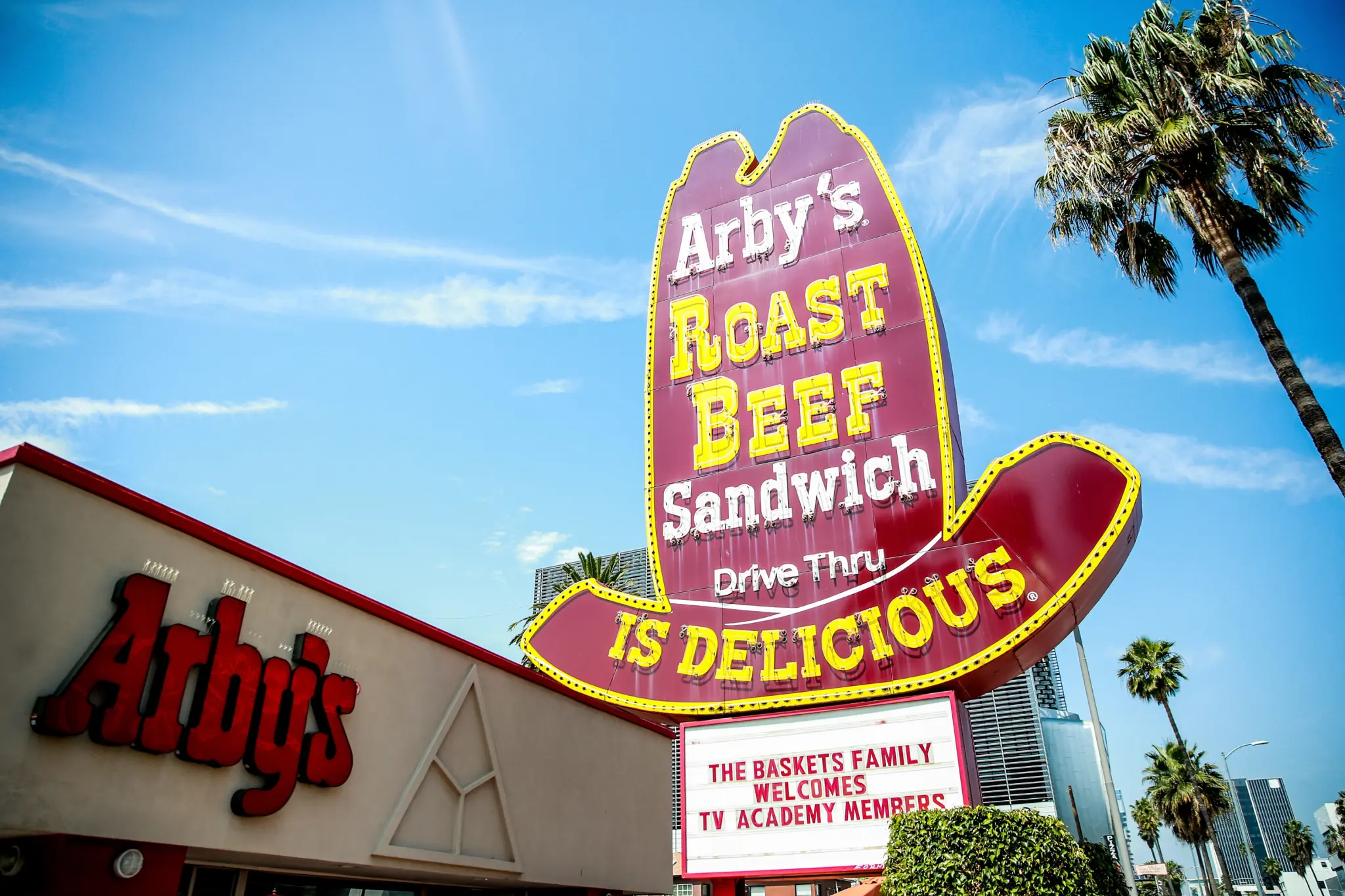One of the most recognizable restaurants in Hollywood is the latest casualty of Governor Newsom’s radical progressive policies..
The Arby’s Roast Beef franchise at 5920 Sunset Blvd. closed on Saturday after 55 years in business.
Customers arrived to find workers covering the windows and doors with plywood and a message reading, “Farewell Hollywood. TY for 55 great years.”
The 91-year-old owner, forced to make this heart-wrenching decision, cites California’s recent increase in the minimum wage to $20 per hour as the principal catalyst for this closure.
Having opened in 1968, this Arby’s location became more than just a fast-food restaurant; it was a historical landmark for locals and tourists alike.

The establishment was a testament to the entrepreneurial spirit and resilience of its nonagenarian owner, who poured his life and soul into the business. Yet, the recent economic policy changes proved insurmountable.
In recent years, California has led the nation in aggressive minimum wage hikes, a move touted by many as a necessary measure to ensure living wages for workers in one of the country’s most expensive states.
However, the unintended consequences of these policies have become starkly evident. Small business owners, especially those in the food service industry, find it increasingly difficult to balance the scales between fair employee compensation and sustainable business operations.
The closure of the Hollywood Arby’s epitomizes this struggle.
The owner, in an interview with KTLA, expressed his dismay at the rising operational costs. “The cost of labor has skyrocketed to a point where it’s simply not sustainable for a small business like ours,” he lamented. This sentiment echoes throughout the small business community in California, where many proprietors feel squeezed by regulatory pressures and escalating expenses.
The ripple effects of such closures are multifaceted. The economic implications extend beyond the immediate loss of jobs for the establishment’s employees, who now face an uncertain job market. Local economies, which rely on the patronage and business generated by such iconic spots, also feel the impact. Moreover, the cultural and social void left by the disappearance of longstanding community fixtures is immeasurable.
Critics of California’s wage policies argue that such measures, while well-intentioned, often fail to consider the practical realities faced by small business owners.
The Gateway Pundit highlights that the increased minimum wage disproportionately affects businesses with tight profit margins. For many, the additional labor costs necessitate either substantial price increases or significant reductions in staffing levels—neither of which are tenable solutions in a competitive market.
Proponents of the wage hike assert that higher minimum wages are essential to combating income inequality and ensuring a basic standard of living for workers. However, the plight of the Hollywood Arby’s serves as a poignant reminder that policy solutions must be nuanced and adaptable to the diverse needs of the business community.
In the broader context, the closure of this iconic Arby’s is indicative of a troubling trend. As California continues to implement progressive wage policies, the state risks alienating the very backbone of its economy—small businesses. Without strategic adjustments and support mechanisms, many more establishments may face a similar fate.
The narrative of the Hollywood Arby’s is not merely one of economic hardship but also of loss—of tradition, community, and a sense of continuity. For over five decades, it stood as a symbol of entrepreneurial success and perseverance. Its closure underscores the pressing need for a balanced approach to economic policy, one that considers the intricate dynamics between fair wages and the viability of small enterprises.
The owner’s decision to close the restaurant is a testament to the difficult choices faced by many small business owners today. “It’s not just about the numbers,” he shared with KTLA, “It’s about the people and the memories we’ve created here. This place is a part of Hollywood’s history, and it’s heartbreaking to let it go.”
Eric Thompson Show
As California moves forward, the lessons gleaned from the Hollywood Arby’s closure should inform future policy discussions. Ensuring fair wages is undoubtedly crucial, but so is preserving the businesses that contribute to the state’s rich economic and cultural tapestry. Policymakers must strive to create an environment where both objectives can coexist harmoniously.
In reflecting on the legacy of the Hollywood Arby’s, one cannot help but appreciate the profound impact that a single establishment can have on its community. While its doors may be closed, the memories and the history it created will linger in the hearts of many. The challenge now lies in crafting policies that protect the livelihoods of workers while also safeguarding the cherished institutions that define our communities.

